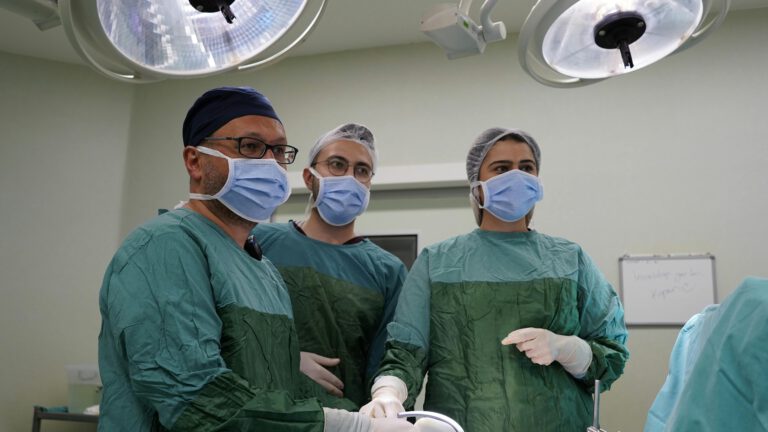The quality of healthcare services, patient rights, and the responsibilities of healthcare professionals are significant topics in modern medicine and law. In Turkey, problems and errors that occur during the delivery of healthcare services can have legal consequences for both patients and healthcare professionals. This article explores whether a surgeon can be sued in Turkey, examines the relevant health laws, and details the legal processes involved. Special attention will be given to potential issues arising from cosmetic surgery.
Can I sue a surgeon in Turkey?
Yes, you can. Healthcare services in Turkey are regulated by various laws, regulations, and directives, starting from the Constitution. The legal responsibilities of healthcare professionals, particularly surgeons, are outlined within these regulations.
Key Legal Regulations
- Turkish Penal Code (TPC): The TPC governs the criminal liability of healthcare professionals for acts committed during the practice of their profession. Articles such as involuntary manslaughter (TPC Art. 85) and involuntary bodily harm (TPC Art. 89) cover damages from professional errors by healthcare workers.
- Turkish Code of Obligations (TCO): The TCO outlines the civil liability of those providing healthcare services. Article 49 of the TCO deals with compensation for damages caused by unlawful acts. If a healthcare professional, such as a surgeon, causes harm to a patient due to negligence or error, they may be liable for compensation.
- Patient Rights Regulation: This regulation details patients’ rights and healthcare providers’ obligations. Legal action can be taken against healthcare professionals who violate patient rights.
If you have experienced a health issue in Turkey, want to seek your rights, and sue the clinic or a doctor, do not hesitate to contact our professional team. Our team specializes in Turkish health law and is here to support you in all areas of Turkish law.
Legal Issues in Cosmetic Surgery
Cosmetic surgeries are particularly significant in health law. Since these surgeries are often elective, legal issues may arise more frequently if patient expectations are unmet. Complications or undesired outcomes following cosmetic surgery can lead to legal actions against the surgeon.
- Medical Malpractice: Cosmetic surgeons must manage patient expectations accurately during pre-operative consultations. Medical malpractice cases often arise when surgeons fail to provide the necessary standard of care. These cases examine all aspects of the surgeon’s conduct before, during, and after the surgery.
- Service Fault: Complications or undesired outcomes following cosmetic surgery can lead to lawsuits alleging service faults. In such cases, it is claimed that the surgeon did not exercise the necessary care or follow standard procedures.
The Legal Process of Suing a Surgeon
Suing a surgeon involves several steps, and patients can pursue their rights through various legal channels.
Legal Process
- Filing a Complaint: Patients or their relatives can file a complaint against the surgeon. This complaint can be submitted to the Ministry of Health, the Medical Association, or directly to the prosecutor’s office.
- Preliminary Investigation and Expert Opinion: Following the complaint, preliminary investigations are conducted by relevant authorities or the prosecutor’s office. Expert opinions are sought to evaluate whether the surgeon adhered to medical standards.
- Investigation and Filing a Lawsuit: If sufficient evidence is found during the preliminary investigation, the prosecutor’s office initiates an investigation and files a lawsuit. Criminal cases are typically handled under the TPC, while compensation cases are dealt with under the TCO.
- Court Proceedings: Lawsuits against surgeons are heard in judicial courts. During these proceedings, the court relies on expert reports and professional opinions to reach a verdict.
Compensation Lawsuits
Complications or undesired outcomes following cosmetic surgeries can result in compensation lawsuits, typically handled under the TCO. These lawsuits consider the patient’s material and immaterial damages.
- Material Compensation: Patients can claim costs related to post-operative treatment, loss of income, and other material damages.
- Moral Compensation: Patients can also seek compensation for psychological distress or dissatisfaction resulting from cosmetic surgery.
Suing a surgeon in Turkey is a significant issue concerning the quality of healthcare services and patient rights. The TPC, TCO, and Patient Rights Regulation establish the responsibilities of surgeons in their professional practice. Complications following cosmetic surgeries can bring the legal responsibilities of surgeons to the forefront. The legal process involves filing complaints, conducting preliminary investigations, initiating lawsuits, and proceeding through the court system. Ultimately, it is possible to sue a surgeon in Turkey, and this process requires thorough criminal and legal examination.





